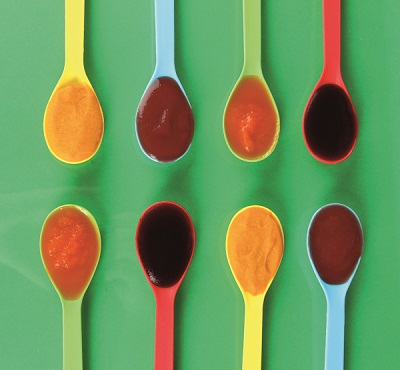Once mental capacity is assessed and any pharmaceutical reasons for refusal are addressed, it is then appropriate for the pharmacist to offer advice and guidance on the practicalities of covert administration.
Considerations for covert administration would include:
- Patient acceptability.
- Reduced or enhanced absorption of medicine when administered with food.
- Interactions with food or beverages.
- Safety of crushed tablets or availability of alternative formulations.
The following are examples of issues that may be encountered during covert administration. The information is not exhaustive; it does not cover every drug. Each medicine should be considered on a case by case basis for each patient.
Patient acceptability
This may be affected by the palatability of medication that is crushed and mixed with food. Some medications have an unpleasant taste or can have an anaesthetic effect on the tongue. This is unlikely to be acceptable to the patient. Film coatings are often used to mask the taste of bitter or unpleasant medicines; crushing the tablet and destroying the film coating could therefore worsen patient acceptability of an already refused medication. This may necessitate switching to an alternate therapy such as a liquid formulation.
Reduced or enhanced absorption
Mixing medicines with food can have a significant impact on the pharmacokinetic profile of a drug. Many drugs are chelated by metal ions such as magnesium, iron and calcium, thereby reducing their absorption. Common examples are levothyroxine, tetracycline, ciprofloxacin and the bisphosphonates.
The presence of food in the stomach can also delay absorption. Certain medications are to be administered an hour before food or two hours after food because of reduced absorption caused by food. A typical example of this would be phenoxymethylpenicillin which should be administered on an empty stomach as administration with food will reduce absorption. Levodopa is another commonly prescribed drug whose absorption is impaired by food in the stomach.
 Interactions with food
Interactions with food
Many foods can interact with medicines either by interfering with the medicines absorption or its pharmacological effect. Dairy products adversely affect the absorption of some antibiotics due to chelation with calcium. There are many documented interactions of medicines with grapefruit juice and cranberry juice, including some statins, carbamazepine, tacrolimus and warfarin. Foods rich in vitamin K interfere with the pharmacological effect of coumarin anticoagulants like warfarin causing an increase or decrease in the patient's INR.
Safety of crushed tablets
Pharmacists should be aware that crushing tablets or opening capsules can affect the bioavailability of the drug and this may necessitate a dosage adjustment. Crushing tablets or opening capsules will always be an unlicensed use of the medicine and should be considered a last resort for patients who have difficulty swallowing medication. Crushing of tablets is consequently not recommended where safer alternatives exist, such as liquid preparations.
There are specific concerns over the safety of crushing hormonal, cytotoxic or steroid medications because of the possibility that the resultant powder may be inhaled or come into direct skin contact with the administrator.
Modified, extended or sustained release tablets should never be crushed, or capsules opened, as this will destroy the modified release properties and release a large dose of medication in one go rather than over a longer period of time. In a minority of cases the tablet or capsule may contain modified release granules which remain intact after crushing or opening. This is rare.
Enteric coated tablets should not be crushed as this may result in the drug being released in the stomach rather than the small intestine and then either being damaged by the gastric acid or irritating the stomach lining. Film coatings may mask unpleasant tastes and when crushed will leave particulate matter that may be observed by the patient or be unacceptable to them.
Where it is considered that crushing tablets is the most appropriate method of administration care staff should be advised to mix the crushed tablet in a small amount of food and to offer this at the start of the meal to ensure the patient takes the full dose. Tablets should be crushed immediately prior to dosing and care taken to ensure all particles and residue are retained and administered.
